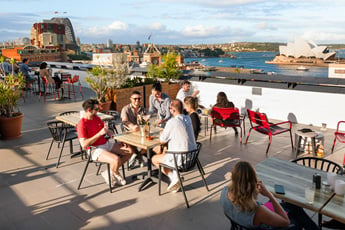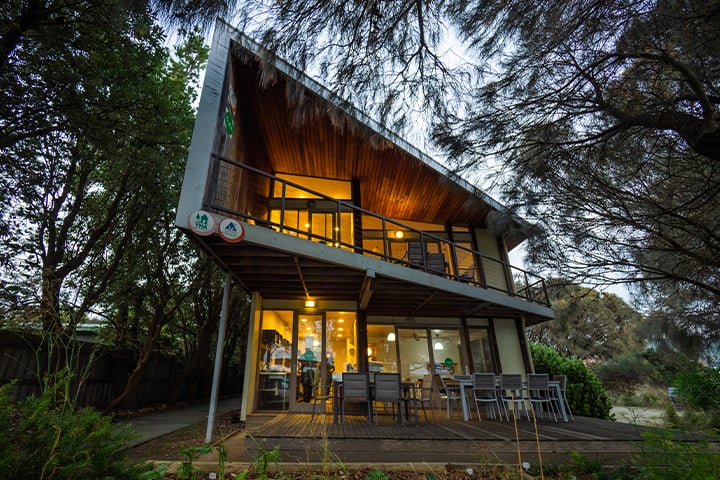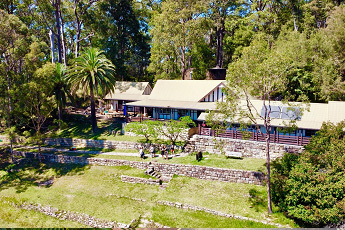Sustainable stays: Why hostel-style accommodation is better for the planet
Turbo-charged emissions reductions
According to research conducted by Bureau Veritas, on average hostels produce a staggering 75% less carbon emissions than hotels. From daily laundry service to landscaped gardens and brightly lit gyms kitted out with treadmills and elliptical trainers, modern hotel amenities and services tend to be very energy intensive. Then there’s the rooms themselves – typically kitted out with a mini-bar, flatscreen TV, bottled water and bathroom amenities wrapped in single-use plastics. Accommodation types based on the hostel model are much leaner operations, in that you don’t have to pay for all these extras, and neither does the planet!
Sharing is second nature
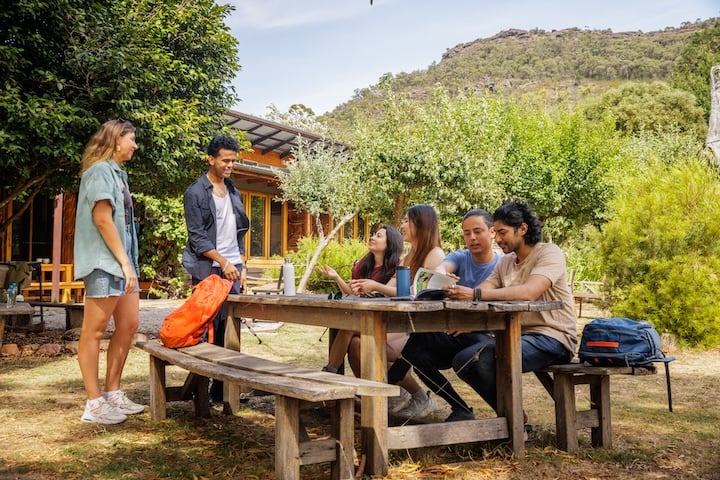
In most hotels around the world, guests generally tend to stick to themselves except for a quick conversation at the hotel bar or an awkward nod over the breakfast buffet. So what’s this got to do with sustainability? Well, in hostel-style accommodation, sharing with others is a way of life. From giving leftover packets of noodles to another guest while cooking in the communal kitchen, to gifting a paperback page-turner you just finished to the guy in the bunk next to yours, circularity is at the heart of the hostel model. Some places, (including several YHAs) take it a step further and reduce waste by having 'swap shelves', where guests can leave second-hand goods they don't need (like clothes, food and books) for others to enjoy.
Supporting local economies
Sustainability isn’t always just about the environment. Supporting the local community and economy is another element of sustainability that often gets overlooked. In comparison to private short-stay holiday rental accommodation, the hostel model contributes more to the local economy by employing people in a range of roles (like reception, cleaning, marketing, administration, and management). Many hostelling organisations also have a long track record of supporting not-for-profit organisations that do great work in the community, like YHA Sydney Harbour’s partnership with The Smith Family.
Boosting the butterfly effect
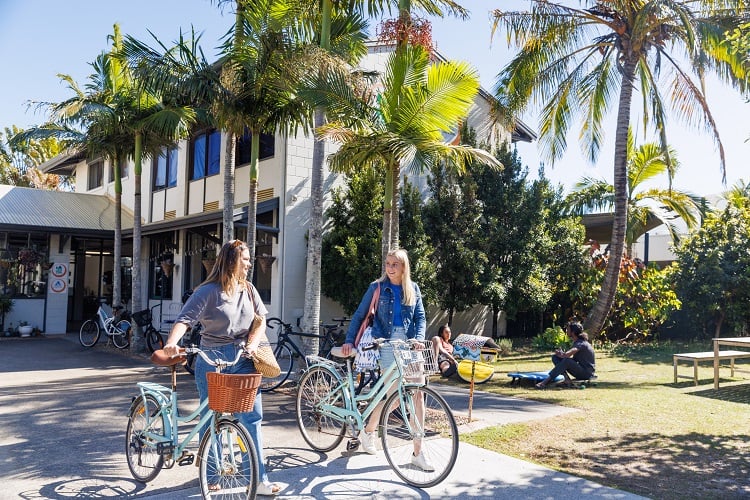
Think accommodation is just somewhere to sleep for the night? Where you choose to stay also subtly influences other choices you make while on the road. While many hotels encourage guests to book Michelin-star restaurants and upgrade to the penthouse suite, excessive consumption just isn’t what hostel-style accommodation is about. Need to get somewhere? In a hotel, you’ll likely be told to hail a taxi or referred to a private transfer service, while at somewhere built around the hostel mode, you’ll probably be recommended to hire a bike, catch a ferry, ride a bus or lace up your sneakers and walk there.
Focusing on lo-fi, accessible experiences like bushwalks, beach swims, communal dinners and kayaking in local rivers, hostel-style accommodation is naturally good at fostering more sustainable travel experiences. From promoting public transport usage to sharing a ride with a new buddy, there’s a significant flow-on effect that comes with these types of stays that you don’t get elsewhere.
Lean, green eco-machines
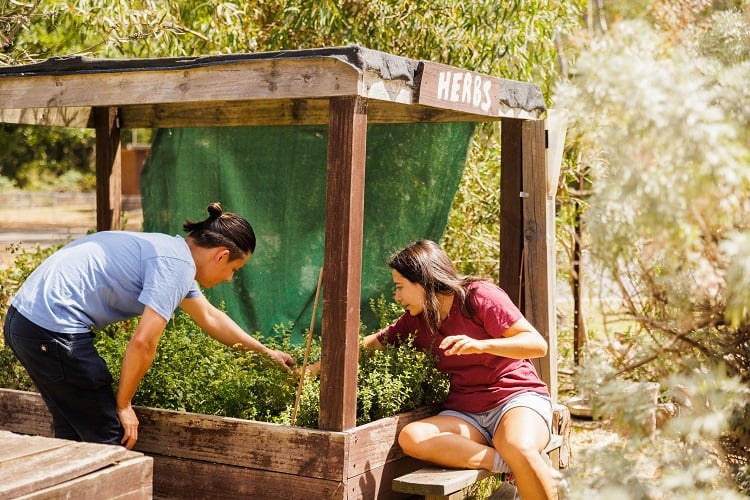
In comparison to large hotels owned by big, for-profit corporations, smaller hostel-style establishments are particularly good at rolling out green initiatives, as there aren’t many layers of bureaucracy to deal with (and fewer rooms and spaces to manage). If you’re hoping to have a smaller footprint when you travel in Australia, be sure to put these eco properties on your list:
In regional Victoria, Halls Gap's YHA Grampians Eco has a solar hot water system, low-energy lighting, rainwater tanks, greywater recycling and an onsite garden to pick your own herbs for dinner.
Also in Victoria, YHA Apollo Bay Eco relies on passive solar design (with thermal storage banks) to keep the space warm in winter and cool in summer without having to turn on energy-intensive air-conditioning. This eco-certified retreat also has solar hot water, low energy and timed lighting, and a compost facility for turning kitchen waste into worm food.
In Sydney, YHA Pittwater Eco's passive solar design with solar hot water means your warm showers are powered by the sun. Organic kitchen waste is composted onsite, eco cleaning products are used to keep the premises clean and rainwater tanks provide water for toilet flushing and to nourish the drought-resistant garden. Guests can even roll up their sleeves and volunteer to take part in bush regeneration activities in Ku-ring-gai National Park.
Words: Jo Stewart
Read next: Why slow travel is the key to exquisite travel experiences in Australia
